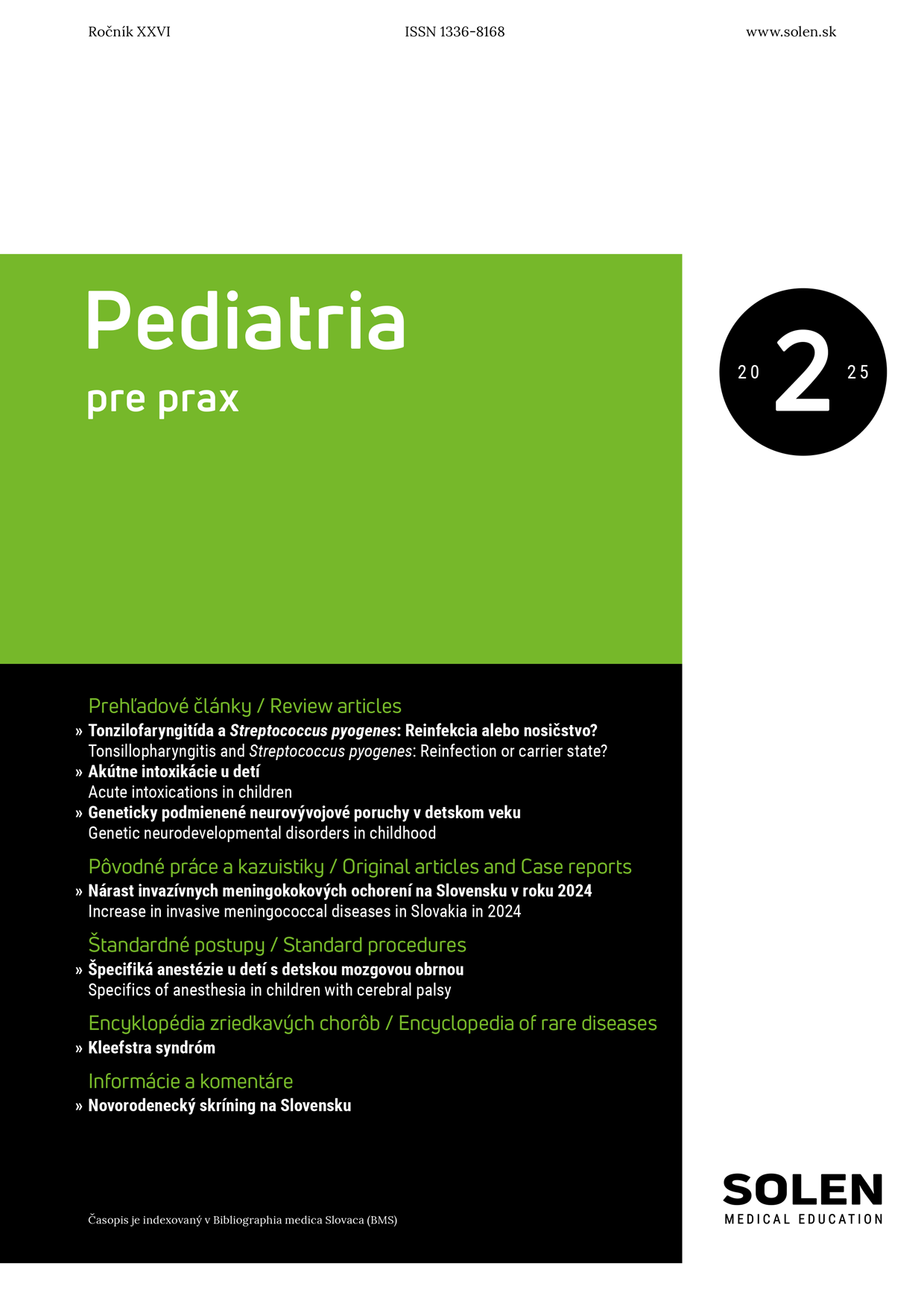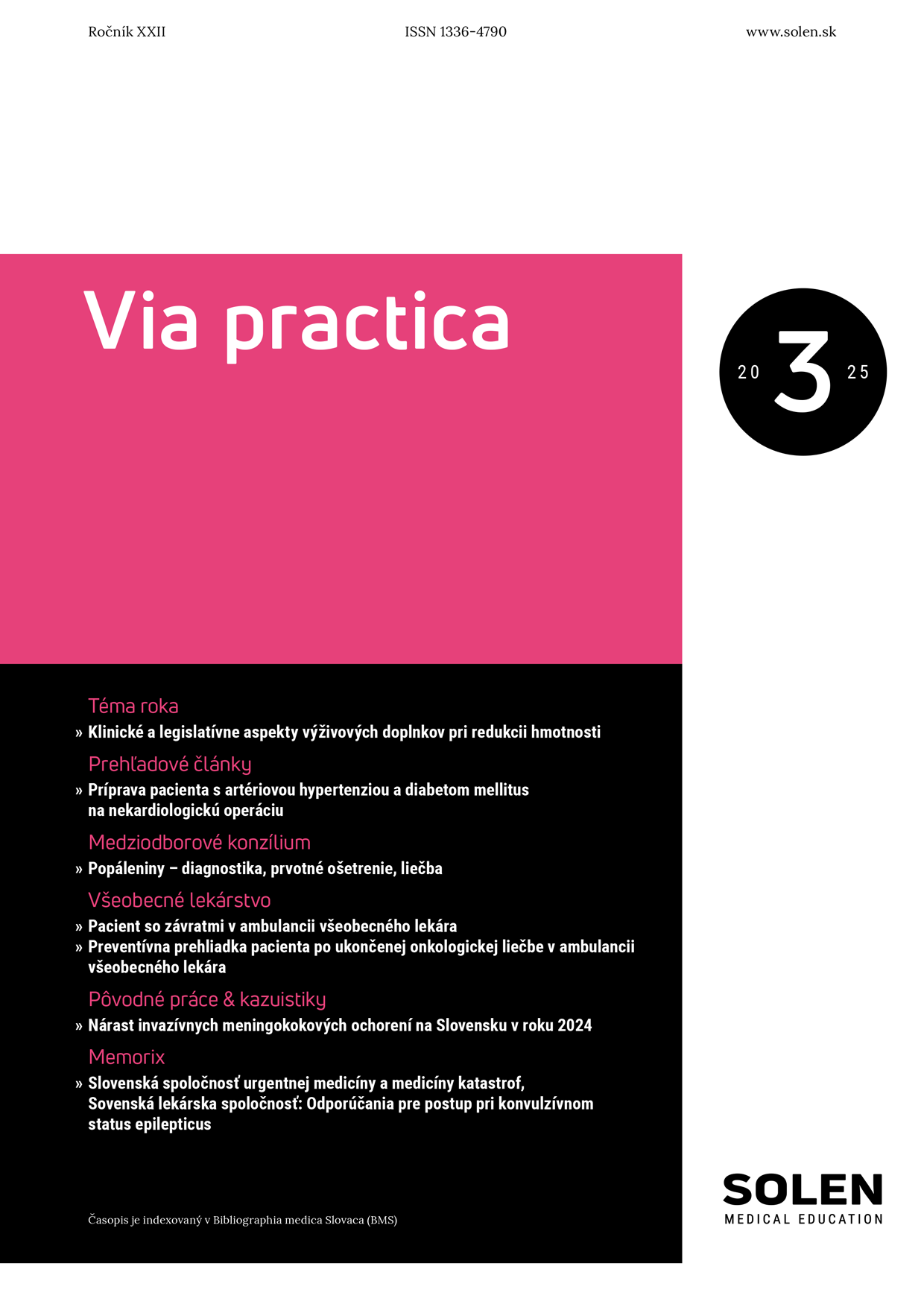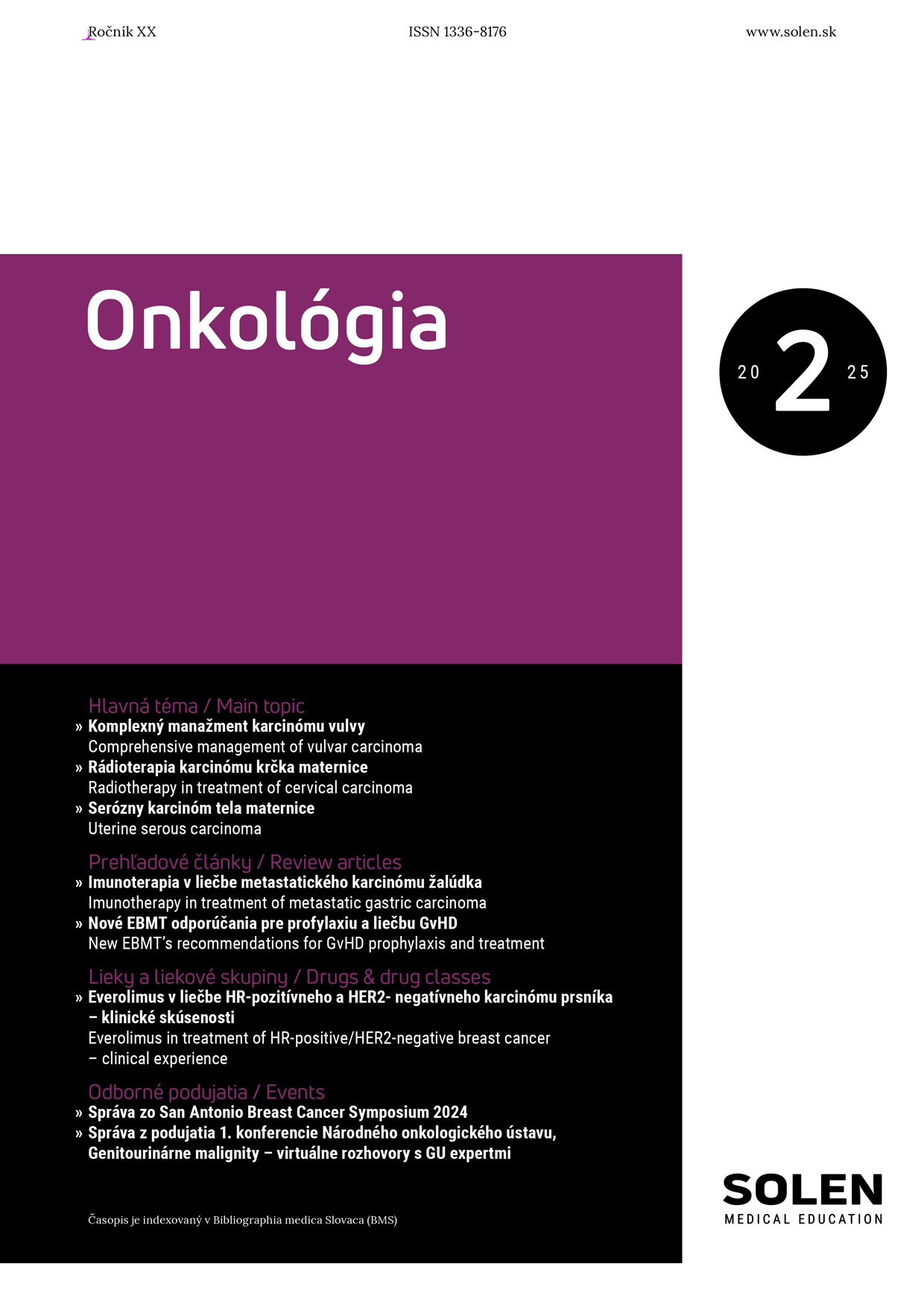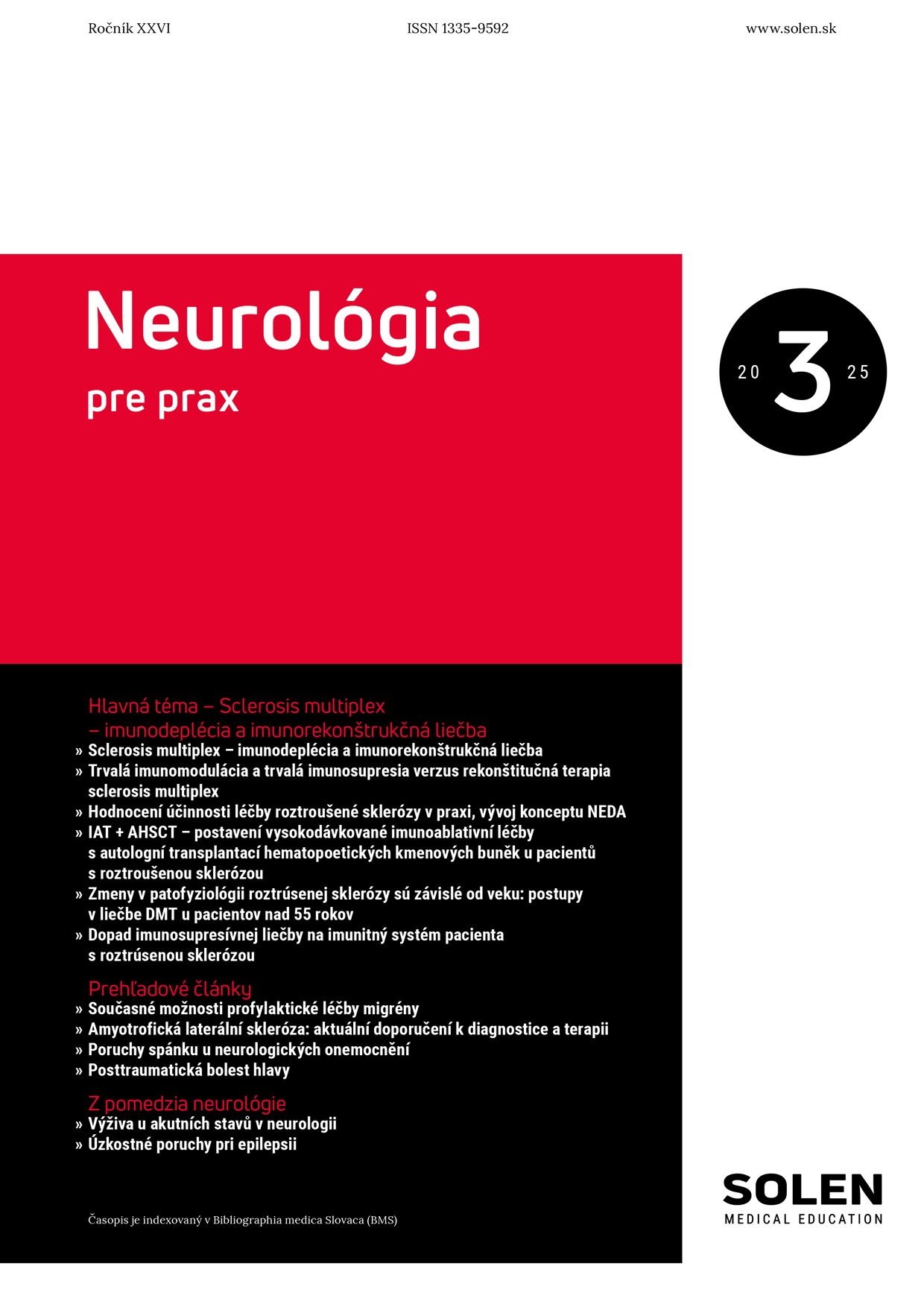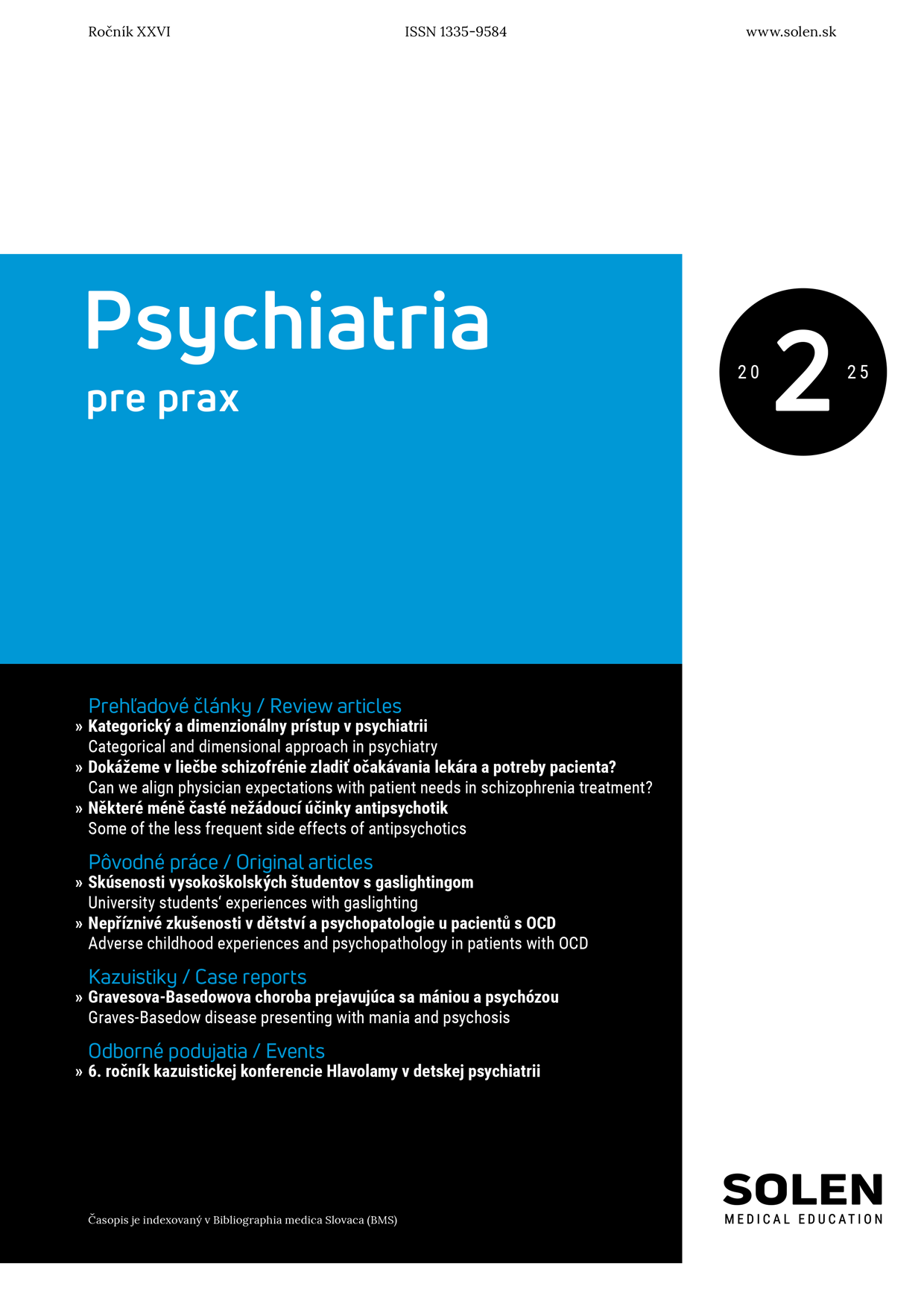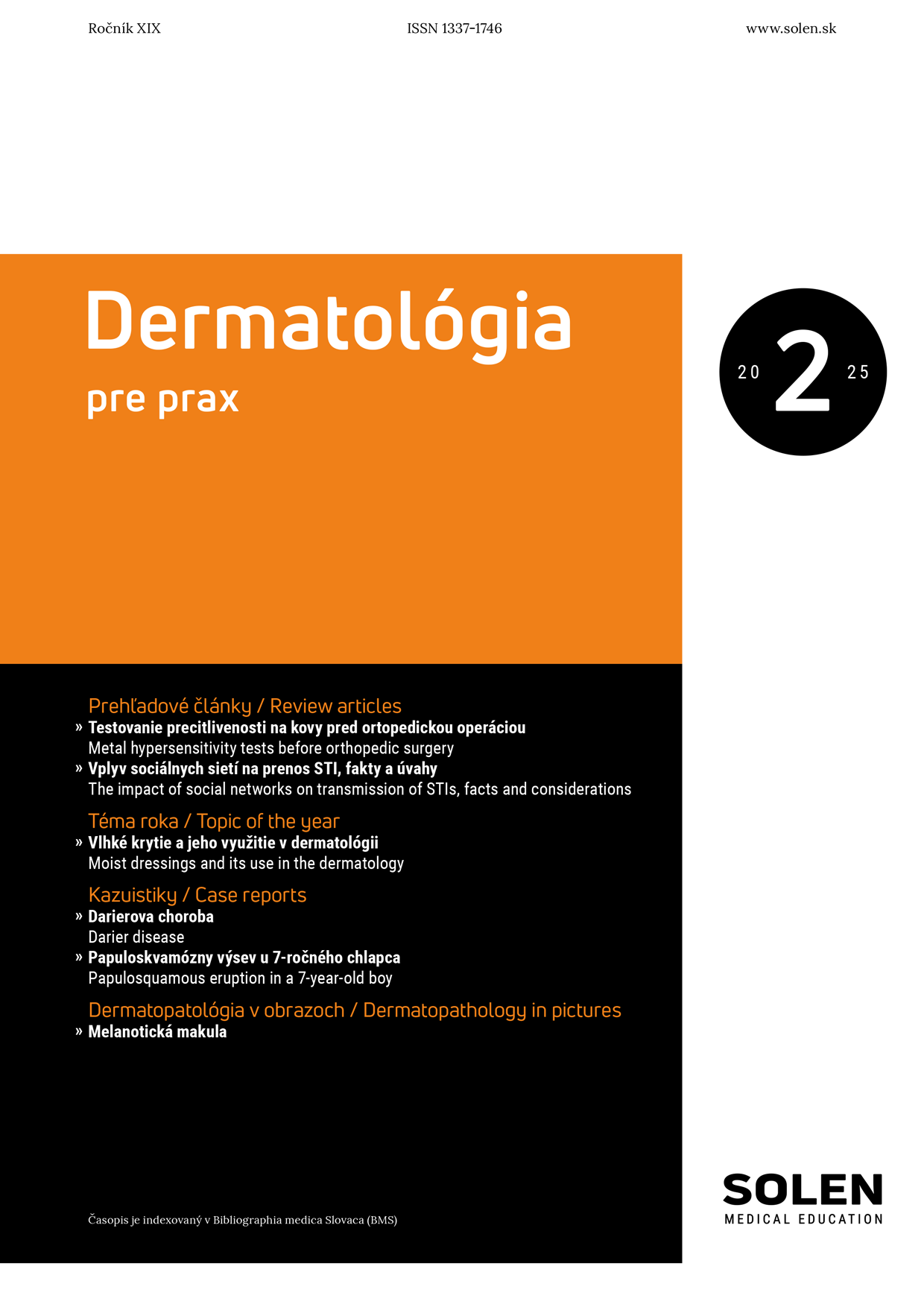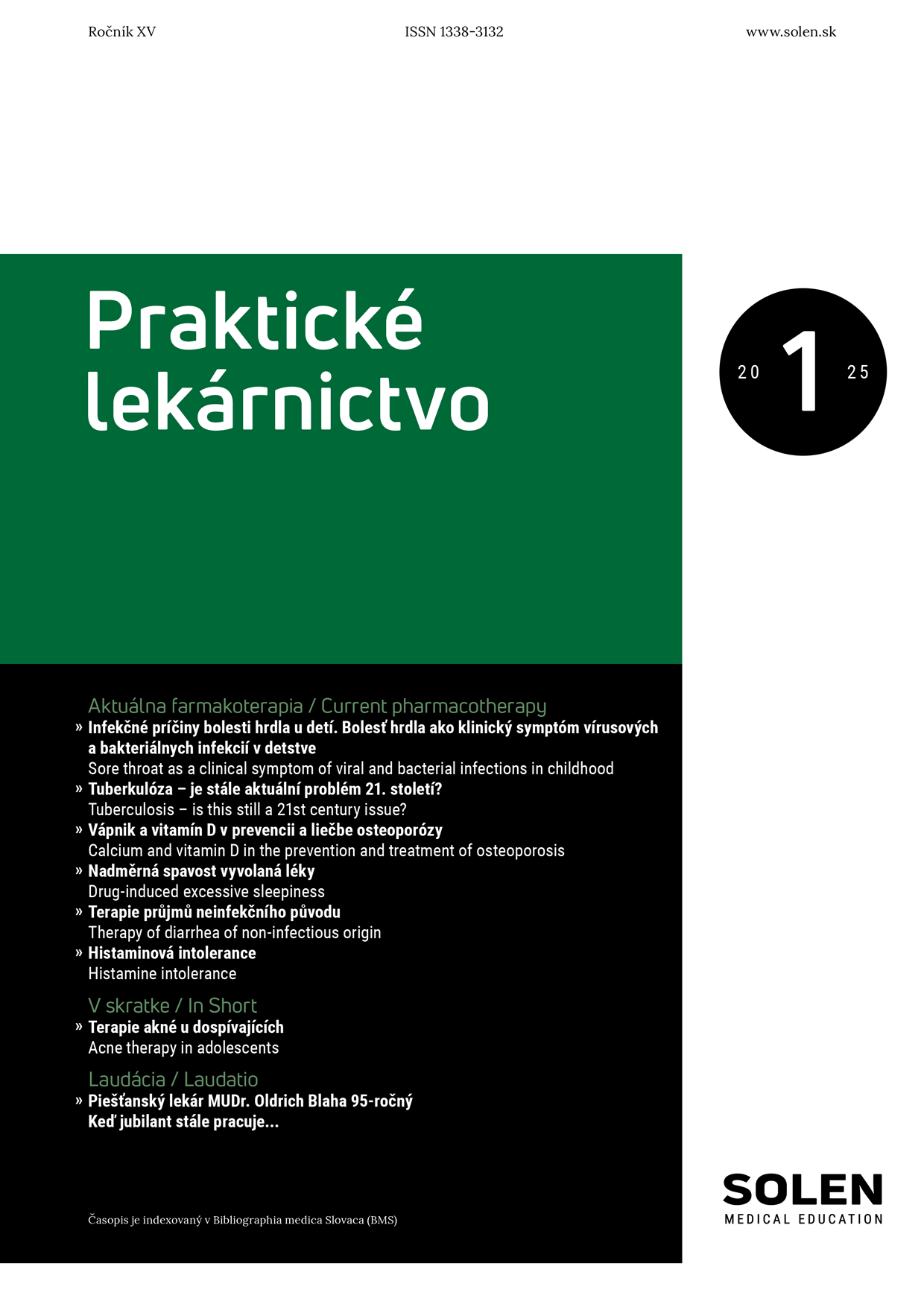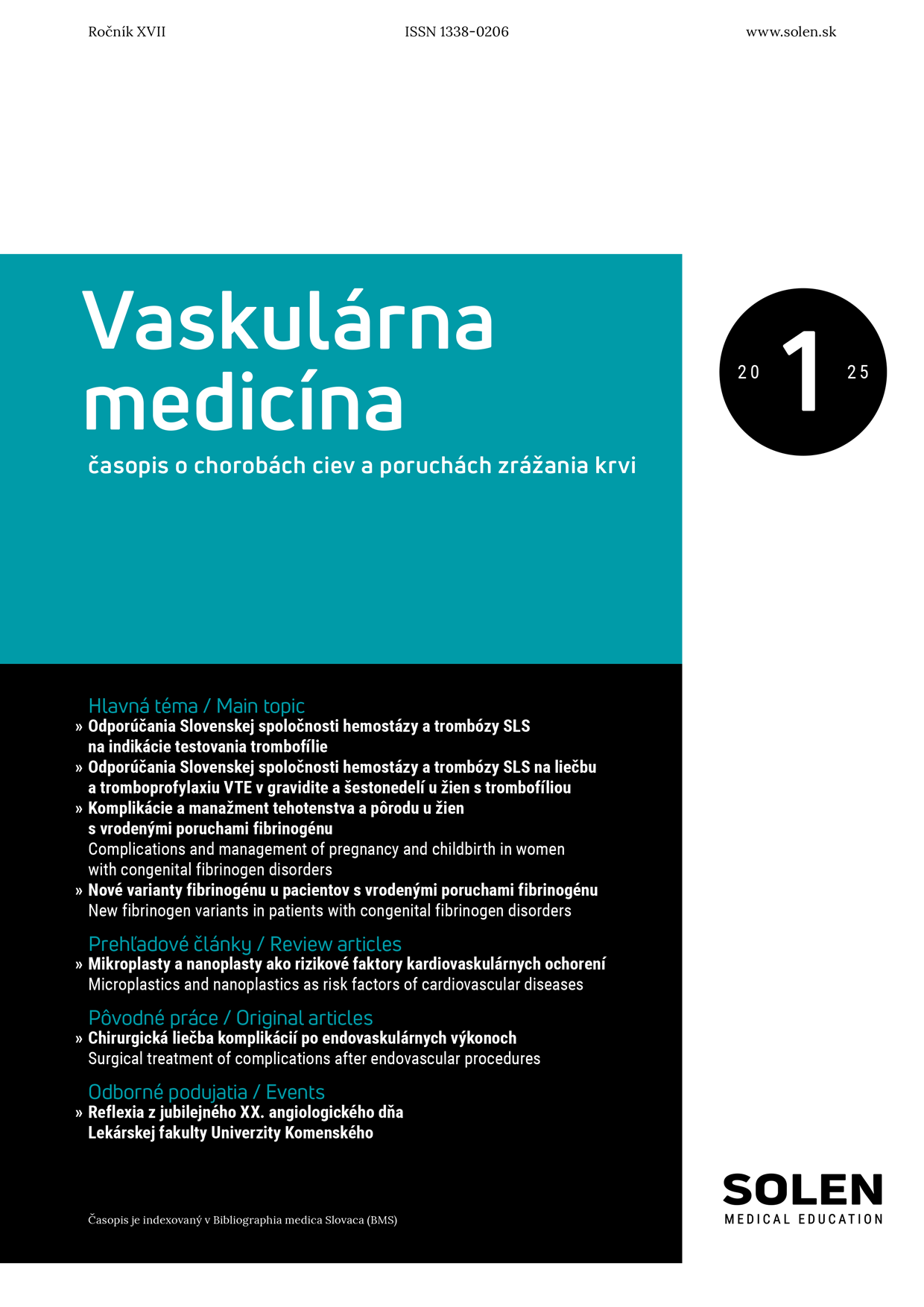Neurológia pre prax 5/2016
Bezpečnostní aspekty léčby relaps remitentní roztroušené sklerózy
MUDr. Radek Ampapa, MUDr. Stanislav Kopecký
Roztroušená skleróza je závažné onemocnění centrálního nervového systému, při kterém je autoimunitní zánětlivý proces nasměrován proti obalům nervových vláken tvořených myelinem. Vyjma zánětlivých mechanizmů se uplatňují i procesy neurodegenerativní. Léčebné možnosti roztroušené sklerózy se v posledních letech výrazně rozšiřují a další nové léky jsou očekávány k využití v klinické praxi v prů- běhu příštích dvou let. Důsledkem tohoto vývoje je nejen vyšší účinnost léčby, ale i širší spektrum nežádoucích účinků. Z tohoto důvodu je nutná pečlivá monitorace nežádoucích účinků, spolupráce s dalšími lékařskými odbornostmi a hodnocení poměru benefitu a rizika léčby pro konkrétního pacienta. Situace je o to komplikovanější, že ne všechny léky mají srovnatelná dlouhodobá data o bezpečnosti. Je tedy nezbytné léčbu u každého pacienta zvažovat přísně individuálně a pacienta zapojit do diskuze o volbě optimální léčebné strategie.
Kľúčové slová: roztroušená skleróza, farmakovigilance, léky ovlivňující onemocnění
Safety aspects of treating relapsing-remitting multiple sclerosis
Multiple sclerosis a serious disease of the central nervous system in which an autoimmune inflammatory process is directed against the myelin sheaths of nerve fibres. In addition to inflammatory mechanisms, neurodegenerative processes are also involved. The treatment options for multiple sclerosis have been expanding considerably in the recent years and more novel drugs are expected to be available for use in the clinical practice within the next two years. This progress results not only in higher treatment efficacy, but also a wider spectrum of adverse effects. For this reason, careful monitoring of adverse effects, collaboration with other medical specialities, and benefit-risk ratio assessment of treatment in a particular patient are all necessary. The situation is even more complex in that not all drugs have comparable long-term data on safety. It is therefore essential to consider treatment in every patient strictly individually and have the patient participate in the discussion on choosing an optimal treatment strategy.
Keywords: multiple sclerosis, pharmacovigilance, disease-modifying drugs


